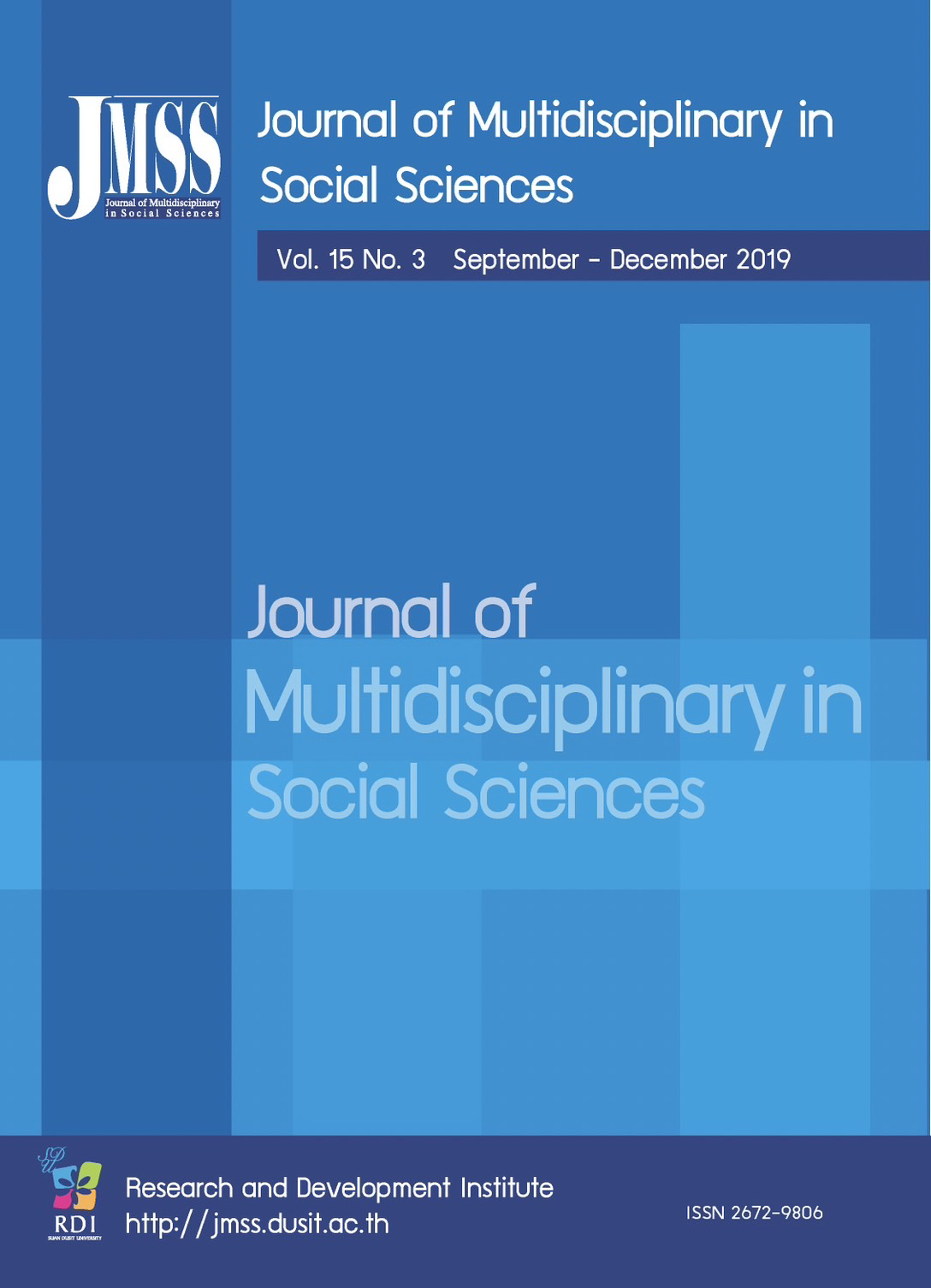The Development of a Set of Learning Experiences for Local Wisdom in Historic Sites and Important People to Promote the Child Development in Suphan Buri Province
Keywords:
Learning Experiences, Local Wisdom, Historic Sites, Important People, Child DevelopmentAbstract
The purpose of this research was to develop a set of learning experiences for local wisdom in historic sites and important people to promote child development in Suphan Buri Province and to compare learning achievement before and after using a set of learning experiences. The population in this research was 15,000 young children of Suphan Buri Educational Service Area Office 1. The sample group in the research was the 4-6 year-old children who were studying in the 3rd year kindergarten of the Suphan Buri Educational Service Area Office 1. One classroom per school was selected from 20 schools by the purposive sampling method. The size of the sample group used the Taro Yamanee formula at a 95% confidence level and the sample size at the error level (e) ± 4%, a total of 600 people. The researchers conducted the selection of teachers using a set of learning experiences for local wisdom in historic sites and important people in the area of Suphan Buri Province, each school for 1 person. The research instruments consisted o f an assessment form for all 4 areas of learning, a self-esteem assessment form, a group discussion data form, and a survey of learning sources of local wisdom on historic sites and important people. The statistics in the research were descriptive statistic using percentage (%), average score and standard deviation (S.D.). The research results of the development of a set of learning experiences for local wisdom in historic sites and important people to promote child development in 4 ar e as: physical, emotional, social and intellectual shows that:
1. The consistency of the set of learning experiences of local wisdom on historic sites and important people to promote child development had the least average of the principle of the learning experience set which was = 3.33 and S.D. = 0.58. The most average was a number of suitable learning topics for young children which was = 4.67 and S.D. = 0.58 and other areas are at a high level.
2. The preparation of a set of learning experiences for local wisdom in historic sites and important people of children selected local wisdom with a value of 60 percent or more and being in the top four of each area, including the 1st area of the archaeological site consisted the learning topic of Chedi was 65.13%. The 2ndarea was the important people in Suphanburi province. There were learning topics of King Naresuan the Great which was 75.21%, Miss Kwanjit Si Prachan was 69.44, His Excellency Mr. Banharn Silpa-archa was 69.23 and Miss Poompuang Duangcha was 67.73, respectively. Wat Phra Sri Rattana Mahathat which was 75.13%, Wat Pa Lelai Worawihan was 70.51%, the ancient city of U Thong was 67.31% and Don Chedi (Phra Borom Rachanusorn Don Chedi) was 65.13%. The 2nd area was the important people in Suphanburi province. There were learning topics of King Naresuan the Great which was 75.21%, Miss Kwanjit Si Prachan was 69.44, His Excellency Mr. Banharn Silpa-archa was 69.23 and Miss Poompuang Duangcha was 67.73 respectively
References
Office of the National Primary Education Commission. (2002). Office of the National Education Commission Education in Thailand. Bangkok: Amarin Printing and Publishing.
Oliva, P. F. (1992). Developing The Curriculum. (3rded). New York: Harper Collins. Pinyoanantaphong, S. (2002). New Measurement and Evaluation: Early Childhood. Bangkok: Srinakharinwirot University.
Saylor, J., Galen, Alexander., William, M., & Lewis, J. (1981). Curriculum Planning for Better Teacher and Learning. (4th ed). New York: Holt, Rinehart and Winston.
Suphan Buri Educational Service Area Office 3, (2010). Policy and Planning Group. Retrieved January 10, 2019, from http://www.spb3.go.th/spb3/index.php
Taba, H. (1962). Curriculum Development : Theory and Practice. New York: Harcourt Brace & World.
Thonthong, S. (2010). Development of Surin Local Knowledge Curriculum (Master’s thesis). Bangkok: Srinakharinwirot University.
Tiramatvanich, W. (2002). Local curriculum development at Early Childhood Education at Ubon Ratchathani Province (Master’s thesis). Bangkok: Sukhothai Thammathirat Open University.
Urairat, Y. (1994). A study of the use of folk wisdom in non-formal education. Eastern schools (Master’s thesis). Bangkok: Chulalongkorn University,
Wongyai, W. (1982). Curriculum development and new dimension teaching. Bangkok: Thanesuan Printing.
Downloads
Published
How to Cite
Issue
Section
License

This work is licensed under a Creative Commons Attribution-NonCommercial-NoDerivatives 4.0 International License.








